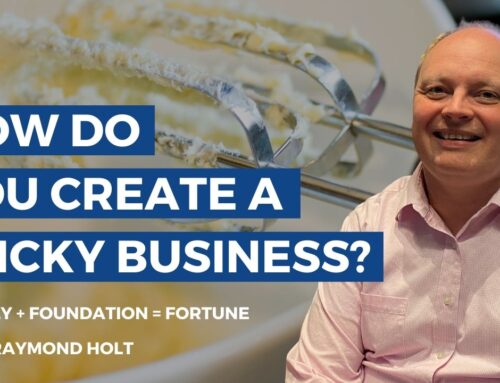While there’s no secret to success, there may actually be a secret to failure and unhappiness: and it’s trying to please all of the people all of the time at your own expense.
Think of anyone who’s achieved greatness – in fields as diverse as science, politics, acting and business – and you won’t find a lot of ‘people who pleased everyone’ in their number.
What you will find is a lot of people who were true to themselves and true to their own beliefs – from Steve Jobs to Richard Branson, Winston Churchill to Muhammad Ali – which in turn made them inspirational figures.
That’s because nothing inspires or resonates quite like authenticity. It’s such a rare commodity that most of us find it irresistible in others when we find it. Yet authenticity isn’t just one of the secrets of success, it’s also a key component of personal happiness.
After all, who wants to go to the office every day and pretend to be someone they’re not? Unfortunately, authenticity is something that many people feel has to be hidden away in the workplace, to be replaced by a pressure to conform to a fictitious corporate persona. What does that say about the workplace cultures we’re creating, if you cannot be yourself?
There’s no such thing as faking it till you make it
There’s an old Hollywood maxim that the out of work actors pray to be discovered, while the established stars pray that they won’t be.
The same could easily be said of many business leaders. They know that it’s essential to inspire confidence in the people who work for them, and so they often adopt the persona they feel is expected of them.
The problem is that it’s incredibly hard, not to say dispiriting, to have to put on an act every day. It’s also fairly pointless, as most people will ultimately see through that role, or at the very least fail to be inspired by it.
So what can you do if you’ve realised that your work persona isn’t really you, and, worse, isn’t inspiring your people?
It’s never too late to start being true to yourself
As a business owner, you are in a unique position to shape the company to your vision by surrounding yourself with people who share your beliefs and values. Yet before you can do so, you really need to sit down and decide what success and happiness means to you; personally, and professionally.
Is it simply to be the best in your chosen arena? Or is it to be the most ethical and trusted business in your sector or simply have fun whilst doing great work. It doesn’t matter what it is. Except, it has to matter to you in order for it to matter to other people.
Once you’ve thought about what success and happiness mean to you, you’ll have a far better idea of what that might mean for the people around you and how you run your company.
But being authentic with others also means being honest with yourself. Does all the confident bonhomie of the new business process make you uncomfortable? Maybe you need to start thinking about hiring someone to whom it comes naturally. You can then both flourish.
If, you love getting out to meet clients for lunch, but find you’re increasingly leaving that to others while you crunch numbers? That’s something you need to change, for your own sake as well as that of the business.
So, while you won’t find the phrase ‘Be Authentic’ in capital letters on the first page of every business book, it probably should be. I believe that authenticity is actually one of the most powerful attributes anyone, business leader or not can have.
It means being able to make amplify your strengths and turn down the volume on your weaknesses. It enables you to create a team that shares your sense of purpose, and has the complementary skills that every business needs to succeed.
Above all, it means giving yourself permission to be yourself: which, when you come to think about it, really is the only way to be both happy and successful.






